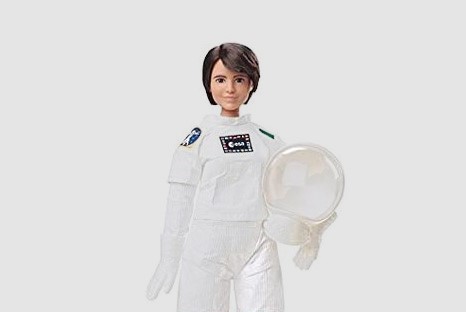Science News Roundup: From soundstage to space: "Star Trek" actor Shatner on board for Blue Origin rocket launch; Astronaut Barbie doll jets off on zero-gravity flight and more
Shatner, best known as Captain Kirk in the original "Star Trek" television series, will be part of a four-person crew aboard Blue Origin's New Shepard launch vehicle on the flight scheduled for the morning of Oct. 12, the company said on Monday. Astronaut Barbie doll jets off on zero gravity flight A Barbie doll version of Italian astronaut Samantha Cristoforetti has jetted off on a zero-gravity flight with the aim of inspiring young girls to consider a career in space and science, technology, maths and engineering (STEM).

Following is a summary of current science news briefs.
From soundstage to space: "Star Trek" actor Shatner on board for Blue Origin rocket launch
William Shatner, the "Star Trek" actor who found fame by pretending a Hollywood soundstage was a spaceship exploring the galaxy, will be launched to the edge of space for real next week in a rocket built by Blue Origin, billionaire Jeff Bezos' space company. Shatner, best known as Captain Kirk in the original "Star Trek" television series, will be part of a four-person crew aboard Blue Origin's New Shepard launch vehicle on the flight scheduled for the morning of Oct. 12, the company said on Monday.
Astronaut Barbie doll jets off on zero-gravity flight
A Barbie doll version of Italian astronaut Samantha Cristoforetti has jetted off on a zero-gravity flight with the aim of inspiring young girls to consider a career in space and science, technology, maths, and engineering (STEM). Marking the Oct. 4-10 World Space Week, which this year celebrates women in space, toymaker Mattel Inc has teamed up with the European Space Agency (ESA) and Cristoforetti, who is currently in training for her next mission to the International Space Station next April.
Two Americans win Medicine Nobel for work on heat and touch
American scientists David Julius and Ardem Patapoutian won the 2021 Nobel Prize for Medicine on Monday for the discovery of receptors in the skin that sense temperature and touch and could pave the way for new painkillers. Their work, carried out independently, has helped show how humans convert the physical impact from heat or touch into nerve impulses that allow us to "perceive and adapt to the world around us," the Nobel Assembly at Sweden's Karolinska Institute said.
(This story has not been edited by Devdiscourse staff and is auto-generated from a syndicated feed.)
ALSO READ
Sacred Peyote: Spiritual Roots of the Native American Church
Quiet Celebrations: Americans Embrace a Low-Key New Year's Eve
Historic Beats: Indian American Dhol Band Headlines Presidential Parade
Biden Unveils New Monuments Celebrating Native American Heritage
Exciting Developments and Strategic Moves in American Sports










